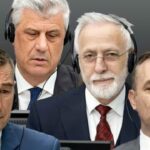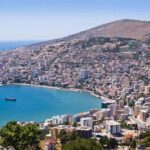The Kosovo government on Monday increased sanctions against Russia, in line with sanctions imposed by the United States and the European Union, since Moscow launched its unprovoked attack on Ukraine on February 24.
The Deputy Minister of Foreign Affairs and Diaspora in Kosovo, Kreshnik Ahmeti, said at the Government meeting that Kosovo is aligned with US and EU policies on sanctions.
The sanctions package also includes bans on Belarus.
Kosovo sanctions mean the freezing of the assets of the sanctioned in the territory of Kosovo, the ban on operating in the Kosovo financial market, the travel ban, and the blocking of access to funds for the sanctioned.
In addition to these sanctions, the Government of Kosovo has agreed to impose restrictive measures on the Wagner group, which consists of mercenaries based in Russia.
“Individuals listed by the EU are involved in serious human rights abuses, including torture and extrajudicial executions,” Ahmeti said, referring to individuals linked to the Qagner group who have been sanctioned by the European bloc.
The Kremlin claims Wagner is a private group, but he is considered close to Russian President Vladimir Putin.
Mercenaries of this group are suspected of abuses in Mali, Libya and Syria.
Kosovo and other Western Balkan countries – except Serbia – have supported Western sanctions against Russia.
European Union foreign ministers will discuss the European bloc’s relations with the Western Balkans on May 16th.
Later on Monday, they will also have a joint meeting with the diplomats of the six countries of this region.
“Discussions on the Western Balkans, in the meeting of 27 ministers, as well as those when the EU ministers meet together with those of the countries in the region, will be the joint confrontation with the challenges and consequences created by Russia’s aggression against Ukraine. ”.
According to diplomatic sources, the main pressure will be on Serbia, as the only Western Balkan country that has not backed EU sanctions on Russia.





